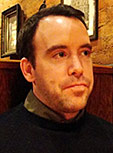 Jason Good
Jason Good
University of Michigan
Sensemaking at Sea: How Captains Organize with Natural Processes in the Kodiak Trawl Fleet
This field study uses sensemaking theory to understand how fishing captains, focusing the trawl fleet based in Kodiak, Alaska, organize with ecological process with the goal of profitability. The research question guiding the study is, how do front-line managers make sense of indeterminate ecological processes? This study examines this question by examining the processes through which captains determine where to fish. Understanding more about interrelationships between ecological and human processes is a long-recognized desire among organizational scholars yet it remains a starkly under-researched domain. Consistent with a process orientation, my research design was a longitudinal interpretive case study. With the goal of theory extension, I used qualitative methods to collect data due to their sensitivity to individuals’ interpretations and activity sequences, as well as contextual elements and processes. Data consist of interviews of a broad range of industry members, participant observation within the Kodiak trawl community, and observation aboard fishing vessels. The findings show that captains make sense of ecological processes when deterring where to fish by merging the abstract elements of their experience with the concrete elements, while also merging their past and their future, all in the present. Making sense of where to fish is a longitudinal process composed of interlinked sensemaking events.
Biography
I am in the all-but-dissertation stage of my doctoral program. I have spent the pat eight years at the University of Michigan, the first two of which I spent getting a Master’s in Resource Policy and Behavior from the School of Natural Resources & Environment. My thesis concerned the nature of Resource Advisory Councils, which are collaborative processes between resource users government agencies, with my focal agency being the Bureau of Land Management. I spent about nine years in the ‘real’ world between my undergraduate program, in which I majored in biology, and my Master of Science program. About half of that time was spent in Alaska as a fisheries biologist, in which I worked on commercial fishing boats in the Bering Sea and Gulf of Alaska, collection biological and sociological data for the National Marine Fisheries Service, the US Government’s agency charged with the sustainable management of marine resources. After taking a much needed break from fisheries while getting my master’s degree, I returned to Alaska’s fisheries for my PhD fieldwork. For my PhD I am applying organizational theory to the commercial fishing context, using bottom-trawl fisheries based in Kodiak, Alaska as a case study. My committee, a combination of business and environmental academicians - Andy Hoffman (SNRE & Ross), Karl Weick (Ross), Wayne Baker (Ross), James Diana (SNRE) - has not yet seen this paper, thus it is not a reflection of their standards.
